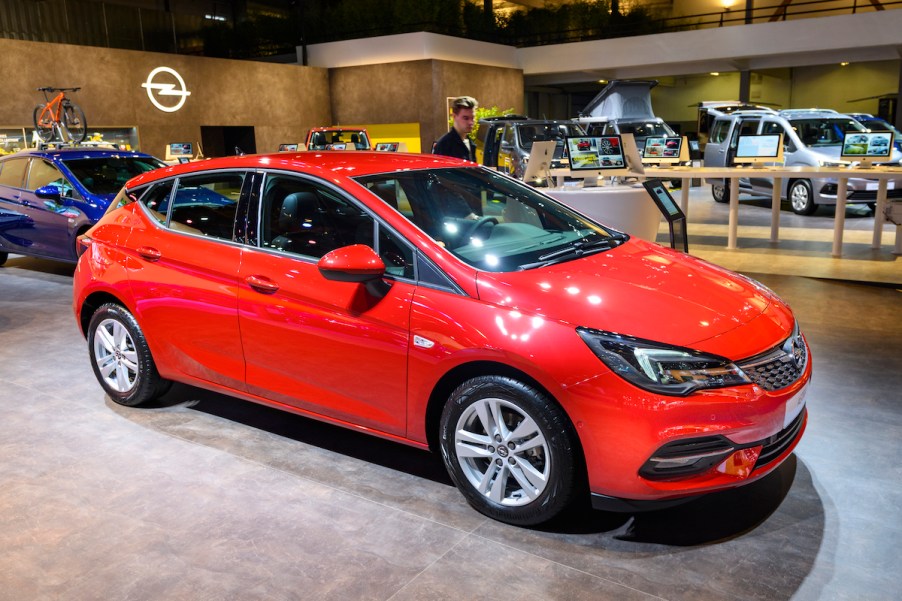
What’s the Difference Between a Hatchback and Liftback?
Almost every car owner knows what a hatchback is and looks like. And while some hatchback and SUV designs can look a little too similar to distinguish them from a distance, the hatchback itself is something most car buyers can describe or pick out.
What about a liftback? The phrase is not especially common as automakers aren’t racing to market liftback vehicles on television or online. Nor are these models particularly well-known to the public. You’d reasonably think that liftbacks might be a form of the hatchback, or at the very least, they have something in common. So what is a liftback? Is it the same as a hatchback or something else entirely?
First, what is a hatchback?

As per J.D. Power, hatchbacks have been around since the late Thirties and have provided consumers with practicality and fuel efficiency in their daily drivers. These vehicles have two or four doors and a box configuration. The cargo area and cabin are combined, with the cargo area being accessible through a rear door. As a result, you may see hatchbacks as either three-door or five-door vehicles.
These rear doors are hinged at the roof, one of their main distinguishing characteristics. Though they share this feature with station wagons, SUVs, and crossovers, hatchbacks are shorter than wagons in length. They also are shorter than crossovers and SUVs in height and generally lack their off-roading capabilities.
Because of their relatively small size, they tend to weigh less than similar five or seven-seater vehicles. As a result, they’re often more fuel efficient than SUVs or crossovers while generally being able to handle nearly as much cargo.
Further, with an AWD option and other available performance upgrades, many hatchbacks are just as versatile as comparable sport utility vehicles. While hatchbacks have their fans in the U.S., they are the most popular car in the United Kingdom, according to Autotrader.
Now, what’s a liftback?
Liftbacks are a bit different. According to Avotachki, a liftback has a tailgate that slopes downward from the roof at a wider angle than a hatchback. Ask Difference pegs the angle at between 5 and 45 degrees. As a result, they often provide more cargo space than a hatchback or a sedan.
As per Hemmings Motor News, the phrase originated with Toyota, which used the term to describe the sloping roofline on the Toyota Celica in the mid-Seventies. Though they were not the only automaker to be using this design feature, the use of the term caught on to describe similar models.
Liftbacks were more popular in the Eighties and Nineties and could be found on budget-friendly models like the Honda Accord. Today, you can find the liftback style on more expensive cars, like the Tesla Model S or Porsche Panamera. You can also find the sloping roofline on so-called saloon cars, which are prevalent in the United Kingdom. These sedans have the same sloping roofline as a liftback sport. Of course, as sedans, they are smaller with less cargo room.
Today’s liftbacks
Tesla and Porsche aren’t the only automakers who’ve appropriated the liftback style. You can still find it on a Toyota – the Toyota GR Supra. But you can also find it on more budget-friendly models like the Kia Stinger and Volkswagen Arteon, luxury cars without the performance car pricing premium. Ford also has the Mondeo, in a more traditional hatchback variation and on a sedan. However, these models are sold primarily overseas.
And even with these models, the phrase liftback isn’t common in marketing. Hatchbacks remain more prevalent, with that term often bandied about as a selling point. Automakers proudly describe models like the Volkswagen Golf, Mitsubishi Mirage, and Honda Fit as hatchbacks online and in broadcast ads. And many models, like the Toyota Corolla Hatchback and Honda Civic Hatchback, include the term in their model names.
Hatchbacks are so ingrained in the automotive landscape that variations have even evolved. Some automakers have souped up hatchbacks with performance-level engineering, inspiring the term “hot hatchback” or “hot hatch” to describe them. But you’ll find liftbacks less common, especially in the U.S., in automobiles marketed to lower and middle-income consumers.


